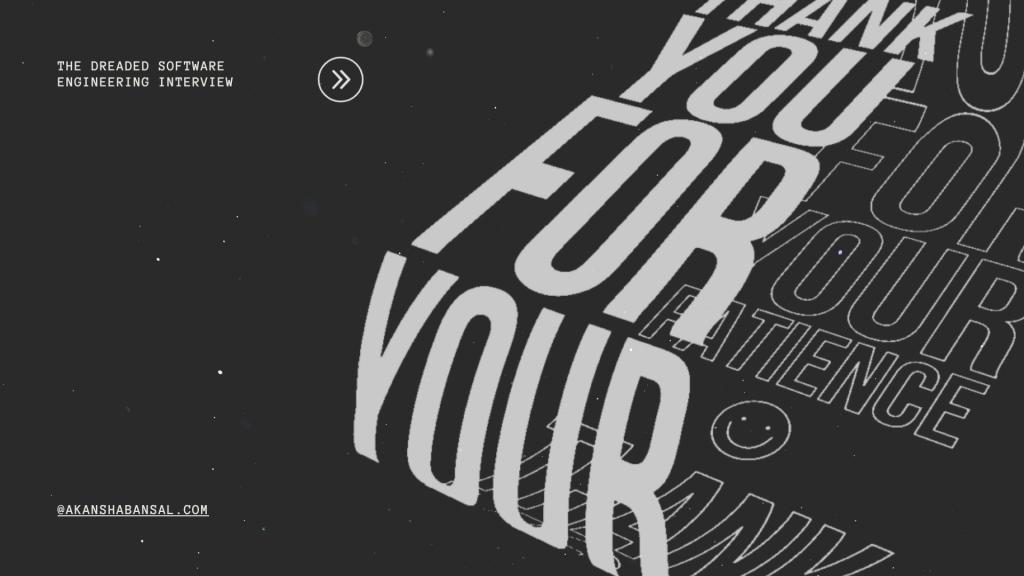
You did it – you landed an interview for your dream software engineering role! But now comes the hard part – preparing for the grueling interview process tech companies are notorious for. Between algorithm quizzes, complex technical questions, and long-winded coding challenges, these interviews can be downright terrifying.The common thread is that the process feels overly academic, pressured, opaque and disconnected from the actual working environment and skills needed for the job. A better experience would be more holistic, transparent and focused on real-world ability.
Common Frustrations included but are not limited to:
- LeetCode trivia questions that seem irrelevant to day-to-day work
- Unrealistic expectations to write perfect code on a whiteboard
- Lack of access to compilers, documentation, or ability to Google things
- Having to code in languages you aren’t familiar with
- Being judged on speed rather than approach to solving problems
- Poorly scoped questions or unclear expectations
- Hostile or condescending interviewers
- Lack of transparency about interview format or expectations
- Whiteboard coding not representative of environment you would actually be working in
- Hours of assessments with no breaks or down time
- Grueling take-home projects that take up weekends
- Interviewer blindspots towards candidates unlike themselves
- Focusing too much on computer science minutiae
- Not enough weight given to previous work experience and projects
- Stressful and exhausting overall process with multiple intense interviews
- Feeling like you are being “quizzed” rather than evaluated professionally
- Interview anxiety and pressure affecting performance unfairly
- Opaque or biased hiring decisions after going through the wringer
why LeetCode style coding interviews may be flawed:
- Emphasis on algorithms trivia rather than practical skills – Questions focus on textbook algorithms and data structures rarely used in day-to-day software engineering.
- Pressure of timed whiteboard coding – The need to code algorithms flawlessly on a whiteboard under pressure is very different from real programming.
- Lack of collaboration – Programmers work together in teams but interviews prohibit discussion or looking things up.
- Narrow problem scope – Short isolated problems don’t reflect the complexity of building and shipping production software.
- Memorization over problem-solving – Candidates cram LeetCode rather than demonstrating analytical abilities.
- False signal of ability – Memorizing interview questions doesn’t prove you can code real products.
- Lack of project evaluation – Actual shipped projects and contributions reveal more than whiteboard exams.
- Language/environment mismatch – Forced to use languages you aren’t productive in rather than your job language.
- Stress and anxiety – High-pressure quizzing induces stress which can diminish performance.
- Discrimination – Potential for gender/racial bias judging candidates without work context.
- Culture fit ignored – Interviews check boxes but don’t assess working relationships.
While LeetCode challenges have some merit for assessment, overemphasis on this style of interview detracts from holistically evaluating candidates’ real-world skills. A better process balances different forms of assessment.
Rethinking software engineering as a career choice for reasons outlined below:
- Finding bugs in complex, large codebases – can feel like endless whack-a-mole
- Constant need to keep learning and master new languages/frameworks/tools
- Dealing with tangled spaghetti code written by others
- Managing technical debt and lobbying for refactoring time
- Writing documentation and explaining technical concepts to non-technical people
- Sifting through outdated, ineffective documentation
- Debating best practices and patterns with colleagues
- Scaling code and systems to handle increases in traffic
- Getting stuck trying to diagnose tricky bugs or errors
- Dealing with vague, constantly changing or poorly defined requirements
- Writing tests and edge case management for robust code
- Working with convoluted legacy systems and integrating new features
- Managing production issues or systems going down at odd hours
- Keeping up with security and compliance concerns
- Estimating complex projects and how long tasks will take
- Having non-engineers make technology decisions
- Lack of mentorship at companies to advance coding skills
- Steep learning curves with new languages and frameworks
- Work-life balance challenges and overtime crunch times
While there are certainly great aspects of software engineering, these pain points can lead to frustration and burnout over the course of a career. Strong engineering teams and company culture help offset the challenges.